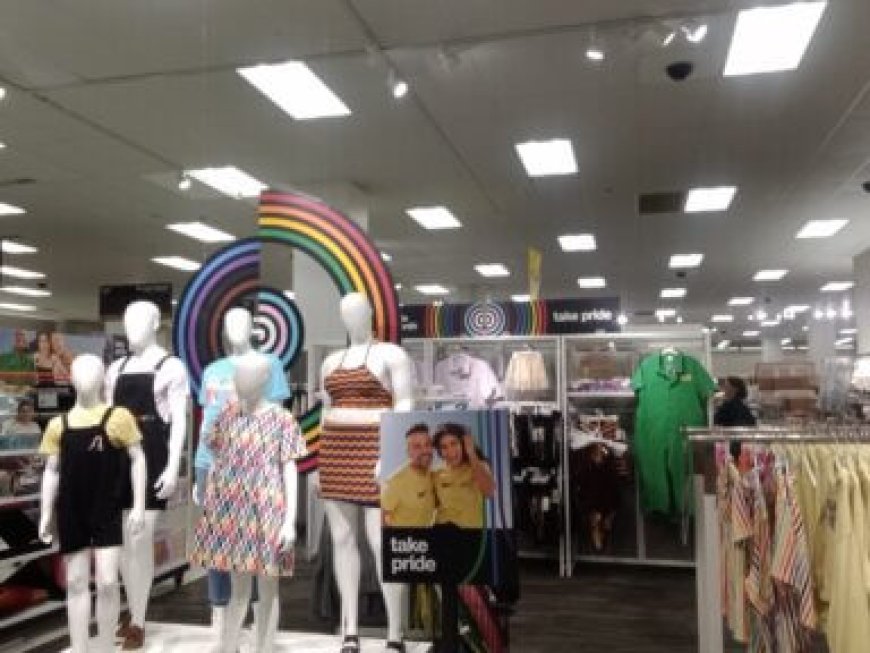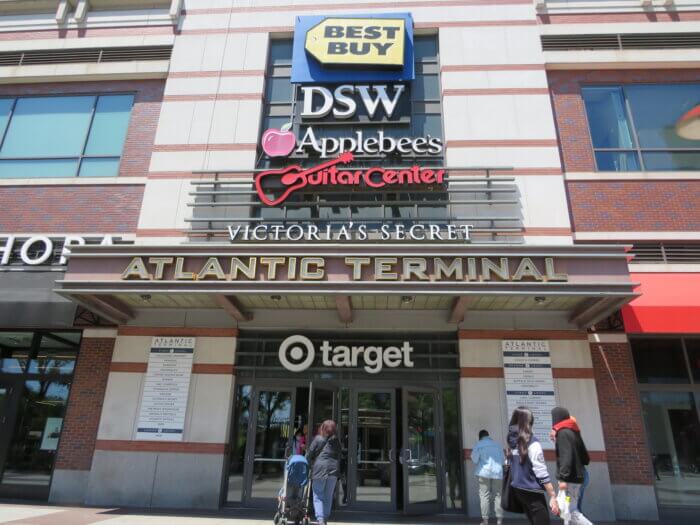LGBTQ groups pressure Target to restore Pride merchandise
Seven LGBTQ organizations have demanded that Target return Pride merchandise it removed from some of its stores and online in response to threats from right wing groups and individuals and to publicly recommit to supporting the LGBTQ movement while taking steps to protect its employees from violence. “Their goal is clear: to prevent LGBTQ+ inclusion … Read More

Seven LGBTQ organizations have demanded that Target return Pride merchandise it removed from some of its stores and online in response to threats from right wing groups and individuals and to publicly recommit to supporting the LGBTQ movement while taking steps to protect its employees from violence.
“Their goal is clear: to prevent LGBTQ+ inclusion and representation, silence our allies, and make our community invisible,” the groups wrote in a May 25 letter to the retailer. “These attacks fuel hate against LGBTQ+ people, just as we’ve seen this year with more than 500 anti-LGBTQ+ bills that restrict basic freedoms and aim to erase LGBTQ+ people.”
The seven groups gave Target 24 hours to put all of the original merchandise back in its Pride Collection displays. Target has not said how many of its 1,954 stores saw the products in Pride Collection displays reduced or eliminated entirely or moved to positions in its stores where they would be less visible. Target has been selling these products during Pride month for over a decade.
It appears that Target did not discuss the move with any LGBTQ groups prior to press reports on the action appearing on May 23. In a May 24 statement posted on its website, the company said that this year, it had “experienced threats impacting our team members’ sense of safety and well-being while at work. Given these volatile circumstances, we are making adjustments to our plans, including removing items that have been at the center of the most significant confrontational behavior.”
RaShawn Shawnie Hawkins, the director of the Workplace Equality Program at the Human Rights Campaign (HRC), the nation’s largest LGBTQ political organization, said that Target’s action was “essentially putting LGBTQ people back in the closet” and the company was capitulating to demands from right wing extremists.
“They are a champion for LGBTQ inclusion,” Hawkins said. “We want Target to double down on their advocacy.”
HRC was among the seven groups writing to Target. The other six are Family Equality, GLAAD, GLSEN, the National Center For Lesbian Rights, the National LGBTQ Task Force, and the National Black Justice Coalition.

The Target controversy came after Anheuser-Busch, the brewer, ended its brief relationship with Dylan Mulvaney, an influencer and transgender woman. The company hired Mulvaney to promote its Bud Light brand during Pride month. Some conservatives objected and began a boycott of the beer, which was already seeing reduced sales. The brewer responded by shutting down the promotion and placing the two executives who engaged Mulvaney on leave. Anheuser-Busch issued an odd statement during the controversy that satisfied no one.
Todd G. Sears, the founder and chief executive of Out Leadership, which promotes equality in the workplace around the globe, told Gay City News that Target had surrendered to extremists.
“I think it’s hard not to see it as capitulation if they are removing things from their stores,” Sears said. “The threat of violence to your employees is something you should address…I would focus on the people who are making these threats. That is illegal.”
Sears said that his 20 years of working with corporations around the globe shows that companies that choose to not support the LGBTQ community “suffer economic consequences.” They have a harder time recruiting talent, younger consumers who are more supportive of the LGBTQ community may choose to align with pro-LGBTQ companies, and LGBTQ employees may leave to work for those pro-LGBTQ companies.
Target and Anheuser-Busch scored perfect 100s on HRC’s annual Corporate Equality Index, which ranks companies by their anti-discrimination and pro-LGBTQ policies. Anheuser-Busch, which has not responded to HRC’s queries about its engagement with Mulvaney, may see its ranking reduced. HRC gave the company 90 days from May 14 to answer.
But retailers are dealing with increased theft and violence in their stores, including mass shootings. Some recent mass shootings have been perpetrated by men who articulated views that are associated with Christian nationalism and other far right movements. Others on the right espouse and have perpetrated violence, as seen during the January 6, 2021 rioting at the Capitol building. The current political environment is more contentious and rhetoric is more heated.
In addition to limiting or ending abortion access following the 2022 US Supreme Court decision that stuck down the right to choose, Republican controlled state legislatures have introduced roughly 520 anti-LGBTQ pieces of legislation and 70 of those have been enacted, according to HRC. Some of those laws were enacted before the Supreme Court decision and much of the focus of those laws has been on attacking the transgender community. These efforts have emboldened already fired up religious conservatives and the Republican Party.
Other companies may look at the experience with Target and Anheuser-Busch and choose to be quieter about their support for the LGBTQ community, though the current controversy is not over.
“I think that it is going to give companies pause for this approach to marketing and I guess merchandising in the case of Target,” said Mike Wilke, the founder of AdRespect, an LGBTQ archive of advertising from 1917 to the present, and a corporate consultant. “It doesn’t mean that this will disappear, but it’s not going to be as welcoming an environment as it has been in recent years.”
That would be the concern for LGBTQ groups and activists. Do these examples represent some version of the future or are they merely two examples that will not be repeated?
If this had been neo-Nazis demanding that Target remove all products manufactured by Jewish owned companies or white supremacists demanding that Target remove products produced by minority or women owned companies, Target would have said ‘No,’” said Alan Klein, a friend of mine, a founding member of Queer Nation, and a longtime member of ACT UP.
“When it comes to supporting the LGBTQ community, that supports seems to be contingent on whether offering that support is easy,” Klein said. “When the going was tough, Target backpedaled on that support. It sets a very dangerous precedent.”

 Mark
Mark 





